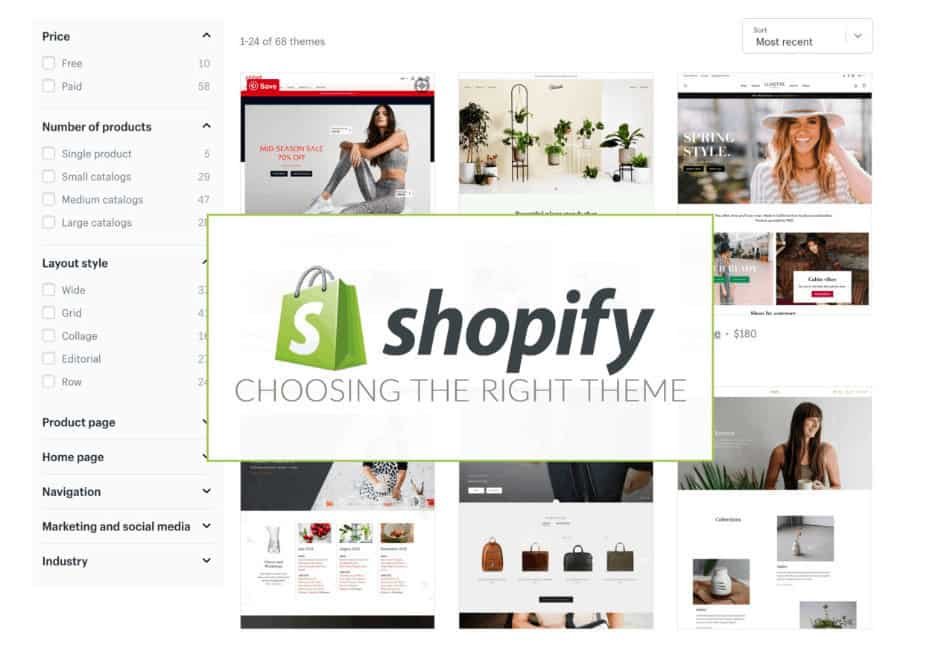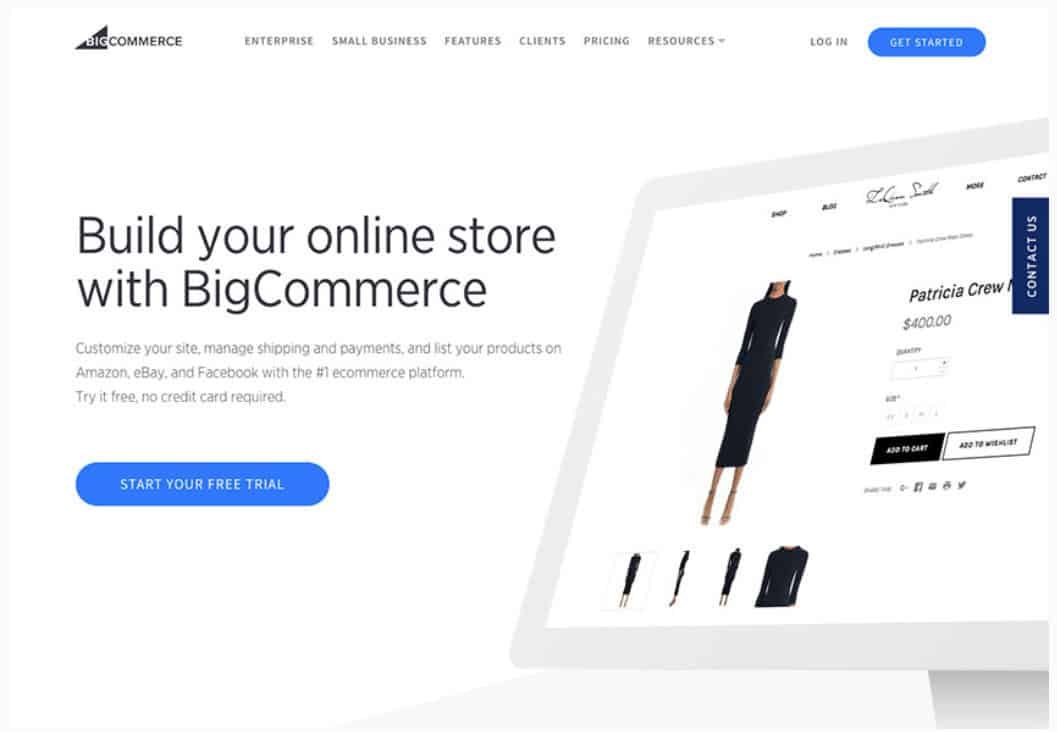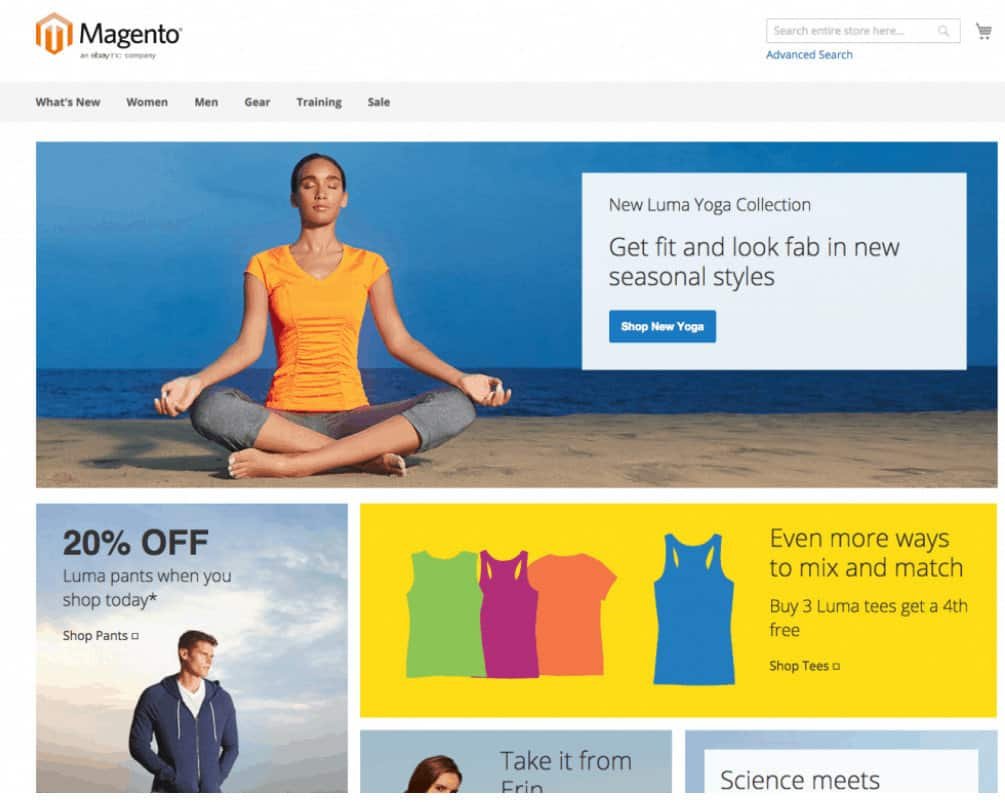eCommerce Platform That Actually Works

What eCommerce platform will work for me?
With the advancement in technology, people have started selling and purchasing from the comfort of their homes.
They don’t bother to visit a nearby market to purchase their goods, and in this era, there is no need to do so.
You got the Internet, and that’s all you need to have your goods at your doorstep-just a single click away.
However, before the advent of the Internet, the scenario was totally different.
People would have spent days in markets selling or buying their desired products.
No doubt, doing business at that time was arduous.
You have to advertise your merchandise through conventional ways such as announcing on a speaker or visiting the nearby population areas to tell people you got everything they need. However, on the other hand, online business is also not as easy as one might think.
There needs a big struggle.
The E-Commerce market is flooded with fierce competition as everybody wants a higher Return on investment (ROI).
Today, hundreds of thousands of businesses have transferred to online and making their outstanding websites or stores.
Being a newbie to online business, can you anticipate one big problem one may face?
As stated by G2, there are over 370 e-Commerce platforms available in the market. Would you like to test all of the 370 platforms and then choose the one that suits you?
I know the answer is a straight NO.
It’s next to impossible to test all of them. Furthermore, when looking for the best e-Commerce platforms, it can be tough to spot a change because there are minor differences between them.
But, these slight differences leave a significant impact on your website and, ultimately, your bottom line.
So in this situation, whether you’re a beginner or an experienced e-Commerce business owner, we have spent days and months picking up the most appropriate and handy platforms for you.
Our quest to discover the best e-Commerce platforms has been an ongoing goal, and here in this article, we have explained the most appropriate and simply recommended the best e-Commerce platforms.
Before we move on to our list of platforms, I would like to congratulate you if you are going to power your online store in 2020.
Over the decades, the e-Commerce trend has been considerably changed. If we thought back to the time 2005-2010, e-Commerce was different and, in fact, way tricky.
There were hardly one to two platforms available with very limited options. The one big open-source platform back then was OS Commerce, which was unique in the way that it was the first open-source (free) platform.
So without any further ado, let’s dive in, take a look, compare all of the top-ranking platforms, and pick up the best and most suited platform and ENJOY YOUR ONLINE JOURNEY.
Shopify

When shopping around the best e-Commerce platforms, Shopify tops the search result and our list of the best e-Commerce platforms as well, for a good reason.
Adorned with e-Commerce features, marketing tools, and slick templates, Shopify is not only the most popular platform, but it is the only best e-Commerce solution for those who are interested in dropshipping or marketing through Facebook Ads and Instagram.
Shopify-the leading e-Commerce platform- was started by a group of snowboarding enthusiasts back in 2004 and since then, it has spread to 175 countries with over 1 million businesses.
Small to medium size companies prefer Shopify over all of the alternatives for a couple of reasons.
Being a beginner, Shopify has everything managed for you. You don’t need to be tech-savvy to use Shopify as all the basics are already integrated into the platform, such as catchy storefront designs, performance analytics, content marketing strategies, etc.
Shopify is equipped with plenty of premade templates and designs so if you are not a coder or developer, you can choose a template from the preexisting and edit it to make it suit your needs.
However, if you are a coder and developer and want to create a new one, you are free to do it without any hassle. For learning purposes, Shopify has given you full access to code. You can use a large number of add-ons and extensions that are available for free to soar the capability of your store.
You might say, that Shopify is the best solution for small businesses, and it has nothing for those who want to expand their plans.
Don’t get me wrong, Shopify is equipped with all the features and facilities you need to run your business at any scale.
- it is blessed with 1400+ apps to increase your business functionality
- and excellent 24/7 custom support
- More than 100 attractive themes.
- 14 days of free trial available
Shopify is the perfect solution to revolutionize your business on any scale, be it a small store or a big company.
Let’s take a look at some of its Pros and Cons.
Pros:
- User-friendly and super easy to set up
- 1-click selling
- 24/7 custom support
- Hundreds of certified partners to assist you
- Allows multiple channels and social selling
- Catchy themes and that too, for FREE
- Support beauty and cosmetics, Electronics, Food and Beverage and Fashion and Apparel, etc.
Cons:
- Not good for SEO
- Apps become costly
- Developer needed for advanced features
Pricing:
Price of the Shopify is scaled at three different options. Basic Shopify will cost you $29/month and Shopify will cost $79/month while the advanced level is $299/month.
Hence, if you are searching for the best e-Commerce platform for both kind of businesses, small-scale and large-scale, Shopify is offering you the best solution. With Shopify, you can almost enjoy over 70 themes and unlimited product listings. One of the outstanding features of Shopify is its ability to Real-time sales statistics.
BigCommerce

Do you own a large and fast-growing business and want to boost its sale?
Don’t look here and there if the answer is YES.
BigCommerce is the best e-Commerce platform for a large business that helps you create the ultimate shopping software.
However, it’s also the best eCommerce platform for startups and small business owners looking to scale their online presence and sale. BigCommerce-founded by two Australians back in 2009-has been spread across 120 countries on the planet Earth and has helped online sellers make $25 billion worth of a sale.
The main goal and focus of an online retailer are to generate some revenues off the website, and with its tons of built-in features, and data tools, BigCommerce is the best platform to soar your sales manifold.
BigCommerce is the most suited platform for small and midsize businesses that have an ample amount of investment in their pocket and want to make as much of their online retailing as possible.
With its dynamic product search engine and a long list of amazing features, it empowers everybody from any field or niche to achieve online success.
Scaling and growth are two key factors that give BigCommerce an edge over all the alternatives. It allows you to sell unlimited products. The platform is equipped with all the necessary as well as advanced level tools that are needed to set up an online store. This is perhaps the one and only one of its kind that has the great ability to grow sales via social media.
Would you be able to polish your store if you are not a developer?
Absolutely YES. You don’t need to have any techie skills. You, even with a small techie mind, can create and fully customize your online stores and shops.
Let’s dive in and check out some of its Pros and Cons.
Pros:
- 24/7 support, phone chat, email, online help centers, or community forums
- 10% discount for the Plus and Pro options
- Custom domains
- 12 free themes and 160+ paid themes
- Ratings and reviews
- Flexible and scalable
- Good SEO performance
- Free trial
Cons:
- Expensive for high volume stores
- Lacks one-click selling and upsells
Pricing:
- BigCommerce standard ($29.95/mo) – $50,000 annual sales limit
- BigCommerce Plus ($79.95/mo) – $180,000 annual sales limit
- BigCommerce Pro ($299.95/mo) – $400,000 annual sales limit
- BigCommerce Enterprise (available upon request)
Therefore, if you are in search of the best e-Commerce platform that could help you boost your online business, BigCommerce is the platform you must try. When it comes to available analytics, BigCommerce is unbeatable as it allows you to analyze dashboards, google analytics, traffic, product, and export reports. It helps you quickly edit and modify SEO-related features like custom URLs and page titles etc.
You get a free trial, so if it fascinates you, you can go ahead and purchase it.
Magento

Magento is another open-source e-Commerce platform that initially released in 2009 and then upgraded in 2015 with an improved code base and more usability.
Magento powers some of the awesome-level storefronts. Adobe then purchased Magento in 2018 which now exists in two versions Magento Commerce and Magento open source. Large brands like Nike and Procter & Gamble use Magento as they have a team of coders and developers.
The platform is mostly used by small to medium-level businesses; however, it requires programmer and specialized developers’ resources.
Magento is a compelling e-commerce platform and has a library of 5,000 extensions.
Magento is best known for three amazing offers
- Offers discounts
- Support recurring payments
- Unlimited product listings
Magento is one of the most powerful e-commerce platforms that allows you to operate it without seeking any developers. Everything is self-taught. Since it’s an open-source platform, you are expected to develop your website on your own using available sources and guides.
However, it provides customer support through online help centers and community forums.
Let’s shed light on its Pros and Cons.
Pros:
- Essentially free of cost
- Great for SEO
- Flexible and scalable
- The large community of users
- Robust feature set
- Support beauty and cosmetics, Electronics, Food and Beverage and Fashion and Apparel, etc.
Cons:
- Demands coding and development skills
- Extended bandwidth and storage space is needed
- No live custom support
Pricing:
Thanks to them, the basic version of Magento is free. However, the enterprise version costs $20,000 annually.
In a nutshell, if you are a developer or someone who knows coding and development stuff, Magento is the most appropriate source for you as it requires programmers and specialized developer resources.
This is unlike Shopify and WooCommerce, where you can plug and play for customizable e-commerce platform experiences. Magento features are hard to ignore as its tools for SEO and making Google like your business, email marketing, social media selling, and just about everything that you can think of can be done on Magento.
Is the Cheapest eCommerce Platform Also the Most Effective?
When it comes to building an online store, entrepreneurs often face the dilemma of choosing between different cheapest ecommerce platform options. However, the cost factor alone may not determine the effectiveness of a platform. Factors such as user-friendliness, customization capabilities, security features, and scalability should also be considered to ensure the long-term success of your e-commerce venture.
Wrapping up:
Its 2020, and undeniably, the competition in e-Commerce is fierce. Since the advent of the Internet, businesses are shifting to online, and more and more sales are being done online.
From ordering a mask and sanitizer to having an iPad at home is the new trend. Order whatever you want with just a single click, thanks to modern technology.
To keep up with current trends, companies, and online retailers are searching for the best and the most appropriate e-commerce platforms. E-commerce is one of the leading and primary business expanding areas for companies.
If you are looking forward to having an online existence of your offline shop or store, you must be needing the best e-commerce platform. Here in this article, we have explained to you the best e-commerce platforms that are user-friendly and inexpensive.
If you are a newbie to online business or shifting from preexisting offline activity to an online store, you must choose your e-commerce platform wisely.
Shopify, BigCommerce, and Magento are the best e-commerce platforms with a dynamic range of features and tools that can boost your business.
We can’t say that this particular single platform is “The Best” as every company has its own set of needs and budgets. However, to facilitate you to our best level, we have briefly guided you.
Some Aditional Information You Might Find Interesting
I hope you enjoy the content and it was useful for you, please let us know if there is something you did not understand.
we are continuously improving our content to deliver the best and easiest content to understand, and getting your feedback is one of the best ways we can ensure that.
So please head on over to our contact page and let us know what we can improve.
If you are looking to create your own eCommerce website or start blogging or start a specific website this might help you.
Want to create your own website or eCommerce store and don’t know where to begin? I know what you are going through and it’s hard to know what will help you get to your desired online goals.
I want to help!
Hosting
If you are looking for a hosting company and you are in a budget you can always go with Bluehost or HostGator these are cheap and if you keep your loading times under 3 sec you won’t have a problem.
Once you have generated a lot of traffic and I mean up in the thousands per month you might want to look for a more dedicated solution as it is Sitegrownd. might be a bit more expensive but it outperforms the other 2 hosting companies.
Webdesign For Blogging
For your first year do not worry about your web design because the foundation for a great Blogging website is the content.
Yes, you should only focus on content creation.
once you hit the 60 blog postmark you will be able to determine what you want your website to look like, but the traffic from Google must be already rolling In.
But if you are like me and don’t have any idea where to begin I will recommend the only course you will ever need to succeed online and I can make this claim because it is not a get-rich-quick scam, as most of the ads online.
It takes a lot of time but the results are astonishing. I tried making money online for 4 years jumping from one course to the next wasting money around the thousands mark.
I’m currently making income on 3 websites with just content and also have started a youtube channel this is all thanks to the process and accountability in the program.
Webdesign For Ecommerce
You have to understand that eCommerce is another beast and usually, you have to have deep pockets in the advertisement department to achieve 5 to 6-figure income.
But if you are taking this route you do have to make your website awesome from the start. and my recommendation for this is to go with only two options.
- Flatsome theme, by far one of the easiest-to-use eCommerce store themes in the market right now with an amazing on-page builder to see the changes as you make them.
- So this theme is the one I use and it’s a multipurpose theme with lots of advantages. I create eCommerce, corporate websites, blogs, personal stores, landing pages, etc. You can find a ton of information online on how to use it. and you practically don’t need to know any coding. that’s why I use It Divi Theme is the most awesome builder I have ever worked with.
Remember that you will have to really on Ads for these types of websites. but if you want to make a passive income site you will have to create search content and link it to your products and store.
There are many free resources out there please check them out and make your own assessment about the tools and strategy you should follow.
there is no one cure for all bad things. you have to make a tailor-made plan to follow and execute.




0 Comments